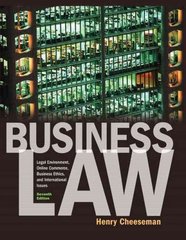Question
Singapore introduced competition in its telecoms industry several years ago by breaking the monopoly of Singtel. M1's entry in 1997 and StarHub's in 2000 were
Singapore introduced competition in its telecoms industry several years ago by breaking the monopoly of Singtel. M1's entry in 1997 and StarHub's in 2000 were meant to provide consumers with more choices and lead to higher levels of service at more competitive prices. Last week, the government announced the award of a fourth licence to Australian operator TPG Telecom. The outcome of these liberalisation moves should be good. The three existing telecoms companies have to up their game or lose their customers, who can switch easily from one telco to the next. Since the domestic market is now shared among multiple players, they also are forced to venture outside Singapore for new business. Singtel, in particular, has done this successfully, with its overseas businesses generating more than half its revenue and profit. This international exposure is good for Singapore companies because it strengthens their capabilities and finances. The entry of a fourth player should sharpen the competition further. That it is from outside Singapore should help to bring fresh ideas into this country and raise telecommunications standards in one of the most globalised nations on earth. While service levels are better now than they were before, there is room for improvement. Earlier this month, Singtel was hit by a widespread broadband outage, slightly over a month after a similarly disruptive StarHub breakdown. These incidents, which inconvenienced customers, show how important it is to maintain high standards of reliability. Telecoms services, which include broadband and mobile services, are part of a country's critical infrastructure and are vital to its smooth and efficient running. This is more so for a place like Singapore, which is a financial centre and an aviation and shipping hub. There is no room for complacency. But the real issue is not domestic competition among local players. The digital revolution has meant that they have to compete now, not only among themselves, but against entities such as WhatsApp, Apple, WeChat and numerous other digital platforms that allow users to communicate, interact and share content with one another. These global giants have upended the industry. They are a boon to consumers but a nightmare to those whose businesses they have disrupted. If local telcos are not strong enough to adapt and meet the needs of their customers, who have many more choices now, they will suffer the consequences.
Step by Step Solution
There are 3 Steps involved in it
Step: 1

Get Instant Access to Expert-Tailored Solutions
See step-by-step solutions with expert insights and AI powered tools for academic success
Step: 2

Step: 3

Ace Your Homework with AI
Get the answers you need in no time with our AI-driven, step-by-step assistance
Get Started


